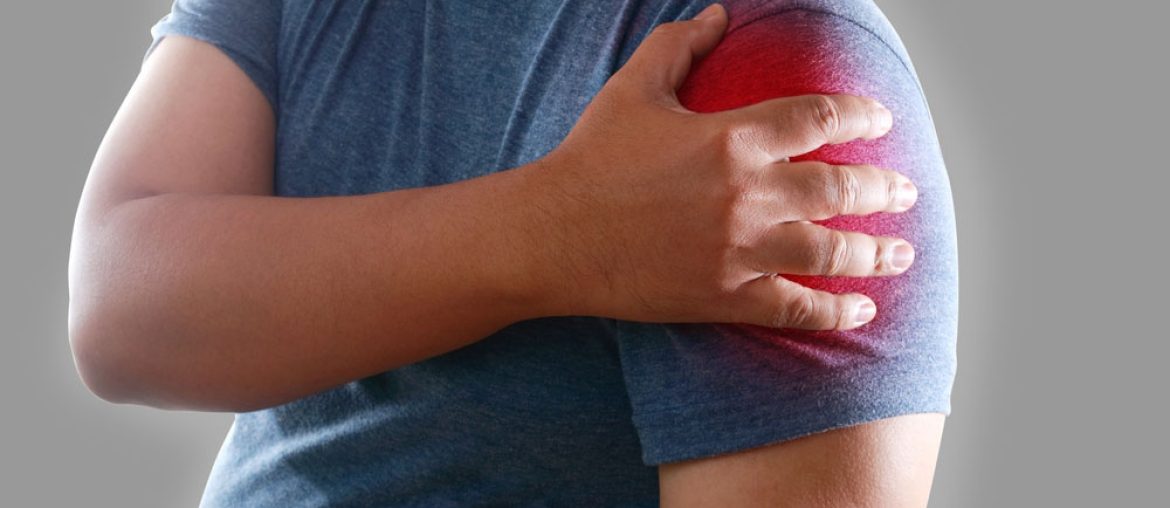Shoulder pain is a frequent issue for residents of Omaha, Nebraska, and Iowa, affecting people of all ages. Whether caused by an injury, overuse, or degenerative conditions, shoulder pain can limit your daily activities and diminish your quality of life. In this blog, we’ll explore the most common causes of shoulder pain and provide insight into treatment options.
Why Shoulder Pain Happens
The shoulder is a complex joint made up of bones, muscles, tendons, and ligaments that work together to allow a wide range of motion. This complexity makes it prone to injuries and degenerative changes over time. Some of the most common causes of shoulder pain include:
1. Rotator Cuff Injuries
The rotator cuff is a group of muscles and tendons that stabilize the shoulder and facilitate movement. Common rotator cuff conditions include:
- Tears: Partial or complete tears of the rotator cuff, often from overuse or trauma.
- Tendonitis: Inflammation of the rotator cuff tendons, typically caused by repetitive overhead activities.
- Impingement Syndrome: When the rotator cuff is compressed during shoulder movements, leading to pain and inflammation.
Rotator cuff injuries are prevalent in athletes, active individuals, and older adults in Omaha and Iowa.
2. Shoulder Arthritis
Arthritis, particularly osteoarthritis, is a leading cause of chronic shoulder pain. It occurs when the cartilage in the shoulder joint wears down, causing stiffness, swelling, and discomfort.
- Symptoms: Pain during movement, limited range of motion, and joint swelling.
- Treatment Options: Medications, physical therapy, or advanced surgical options like shoulder replacement.
Shoulder arthritis often affects older residents of Nebraska and Iowa, but early intervention can help manage symptoms.
3. Frozen Shoulder (Adhesive Capsulitis)
Frozen shoulder occurs when the shoulder joint becomes stiff and painful due to thickened and inflamed joint capsule tissue. It typically develops gradually and can severely limit mobility.
- Risk Factors: Diabetes, prolonged immobility, or previous shoulder injuries.
- Treatment: Physical therapy, corticosteroid injections, or, in severe cases, shoulder manipulation under anesthesia.
Frozen shoulder can impact residents recovering from injuries or surgeries in Omaha and Iowa.
4. Shoulder Bursitis
Bursitis is the inflammation of the small, fluid-filled sacs (bursae) that cushion the shoulder joint.
- Causes: Repetitive shoulder movements, trauma, or underlying conditions like arthritis.
- Symptoms: Pain, swelling, and difficulty moving the shoulder.
- Treatments: Rest, anti-inflammatory medications, and physical therapy.
This condition is common in individuals who perform repetitive motions, such as athletes or laborers in Nebraska and Iowa.
5. Shoulder Instability and Dislocations
Shoulder instability occurs when the joint is too loose, often due to repetitive stress or trauma.
- Acute Dislocation: The ball of the joint slips out of the socket, causing severe pain.
- Chronic Instability: Recurrent dislocations or a feeling of the shoulder “slipping.”
Treatment may involve physical therapy or surgical stabilization for more severe cases. Shoulder instability frequently affects younger athletes in Omaha and Iowa.
6. Labral Tears
The labrum is a cartilage ring that stabilizes the shoulder joint. Tears in this structure can cause pain, instability, and clicking sensations.
- Common Causes: Overhead sports, falls, or heavy lifting.
- Treatment: Arthroscopic surgery is often required for significant tears.
Labral injuries are common in baseball players, weightlifters, and other active individuals in the Midwest.
7. Fractures and Traumatic Injuries
Shoulder fractures, such as broken collarbones or humerus fractures, are often the result of falls, car accidents, or sports injuries.
- Symptoms: Intense pain, swelling, and deformity.
- Treatment: May include immobilization, physical therapy, or surgical fixation.
Fractures are a common emergency among Omaha and Iowa residents during winter months due to icy conditions.
Treatment Options for Shoulder Pain in Omaha and Iowa
If you’re experiencing shoulder pain, it’s important to seek care from a qualified shoulder specialist. Common treatments include:
- Nonsurgical Options: Physical therapy, anti-inflammatory medications, and corticosteroid injections.
- Minimally Invasive Surgery: Arthroscopy for rotator cuff repairs, labral tears, or shoulder instability.
- Shoulder Replacement Surgery: For severe arthritis or fractures, shoulder replacement can provide long-lasting relief.
Why Choose an Omaha or Iowa Shoulder Specialist?
Residents of Omaha, Nebraska, and Iowa have access to skilled orthopedic surgeons specializing in shoulder care. By working with a local expert, you can receive personalized treatment tailored to your condition. Look for board-certified surgeons with extensive experience in treating shoulder injuries.
Contact Us for Expert Shoulder Care in Omaha and Iowa
Shoulder pain shouldn’t hold you back from enjoying life. If you’re in Omaha, Nebraska, or Iowa, we’re here to help. Dr. Del Core specializes in diagnosing and treating all types of shoulder conditions, from rotator cuff tears to advanced arthritis.
Call us today to schedule a consultation and take the first step toward a pain-free shoulder.

